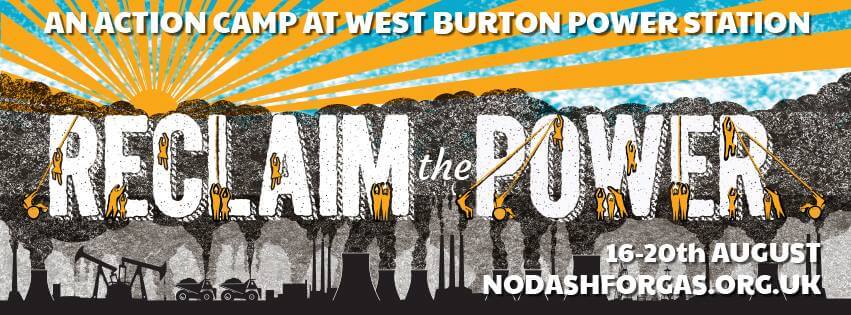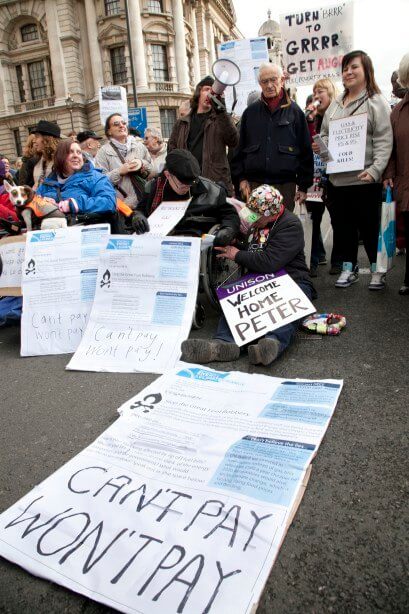This August, we will be at Reclaim the Power camp at West Burton power station in Nottinghamshire, and we hope you will join us! Here are three reasons why:

1) More frontier gas means more repression and environmental injustice
This January, David Cameron made the first official visit to Algeria post-independence. While arms sales are a prominent part of the two countries’ relations, energy is high on the agenda. Two months later, the Algerian authorities passed a law opening the way to a potentially destructive project: the exploitation of shale gas. This law was approved in a climate of total opacity, without a national debate and with no involvement from civil society.
According to Claire Spencer, a Maghreb expert at Chatham House (italics added)
There’s certainly no UK criticism of the lack of political reform [in Algeria]. That’s very different from what the British say about Morocco, Tunisia and Egypt. The argument is that it’s not in their interest to start berating the Algerians. It is similar to the way they have looked at the Gulf, where there is the same tension between commercial interests and concern about human rights.

British and EU political involvement pushing for frontier gas contributes to repressive regimes, in Algeria, Azerbaijan where the signing of a pipeline agreement is helping President Aliyev cover up unrest in the run up to a national election, and elsewhere.
We will be co-running a workshop at Reclaim the Power on working with communities on the fossil fuel frontline.
2) Gas dependency locks us into a fossil fueled future and climate crisis
Corporates and politicians attempt to present gas as a replacement for coal, promising lower carbon emissions. But the truth is that LNG terminals, tankers, pipelines and the extraction of gas itself produces high levels of CO2.
A new planned mega-pipeline for gas from the Caspian Sea to Central Europe could put an extra 1100 million tonnes of CO2 into the atmosphere by 2048 – the equivalent of 2.5 years of total emissions from five of the countries it runs through: Azerbaijan, Georgia, Turkey, Greece and Albania. (See our recent briefing on Europe’s Keystone XL for more information.)
Planned for periods over 35 years, projects like this would lock the EU into dependency on fossil fuels, undermine support for renewable energy even further and undermine our ability to transition to a low carbon economy.

3) The power of gas and energy companies pushes people into fuel poverty
Over one in four UK households face an impossible choice between heating and eating in the winter. Using gas for most of our heating and almost half the electricity prolongs this situation. The most recent official prediction is that if the government’s plan to build more gas power stations goes ahead, then our bills could be up to £600 more expensive by 2050. In contrast, if we invested in renewables instead of gas, then our bills would rise by just £100 by 2020, before starting to fall in 2030. (See this pamphlet from Fuel Poverty Action for more detail.)
To receive more information about the camp itself, follow @nodashforgas on Twitter and join the Facebook event.